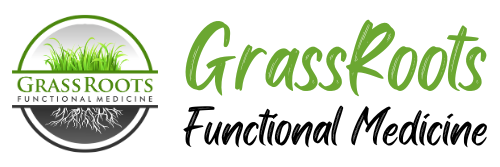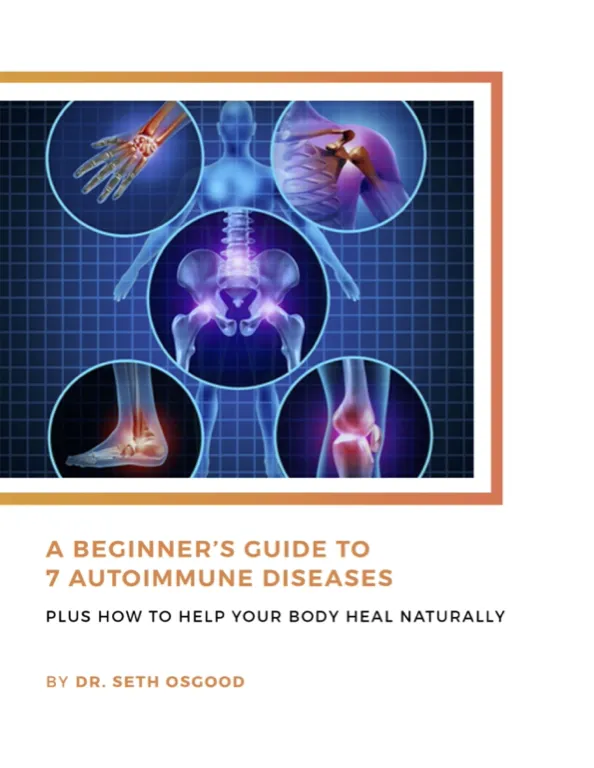Bloating is no fun. That overly full, distended, even painful feeling after eating can make you pretty miserable and interfere with getting through your days with energy and joy. Many people experience occasional bloating, and for those with digestive conditions like IBS, the vast majority suffer from frequent bloating. You shouldn’t ignore this symptom and just try to live with it. Bloating, like other digestive symptoms, is one way that your body communicates that something is out of balance.
So what causes bloating? It is usually the result of poor digestion, leading to fermentation and a resulting buildup of excess gas in the small intestine, causing pressure and distension. But that raises the question, why are foods not being properly digested in the first place? In this article I’ll walk you through some of the most common root causes of bloating and what you can do to address them.
To begin, it’s important to know that digestion is a north-to-south process, and dysfunction higher up in the system can cause symptoms like bloating further down the digestive tract. Even though the bloated feeling is occurring in your abdomen, the root cause could be much higher up in the chain of events.
Causes of Bloating
Stress
Digestion begins in the brain. The state of your mind and nervous system when you are eating has a profound effect on subsequent digestion. Functional medicine talks a lot about the gut-brain connection, often in the context of how gut health affects neurological function. But it is a two-way street, and the brain needs to send signals to the digestive organs for them to do their jobs.
The autonomic nervous system has two modes, sympathetic (“fight or flight”) and parasympathetic (“rest and digest”). When you are in fight-or-flight mode, the brain doesn’t send the signal to the stomach and pancreas to produce stomach acid and digestive enzymes, and digestion won’t happen properly. Additionally, eating in a stressed-out state means you probably aren’t chewing your food very well, leaving more work for your stomach to do. All of these can lead to bloating.
Low Stomach Acid
The stomach is meant to be highly acidic, with a pH of around 1.5 to 2. (For reference, the pH of battery acid is .8 and the pH of distilled white vinegar is around 2.5.) However, if stomach acid is inadequate, foods won’t be properly broken down, they’ll sit longer in the stomach, and they can feed bacteria further down the road, leading to bloating. Causes of low stomach acid include stress (discussed above), certain medications (specifically antacids and proton pump inhibitors), and GI infections, notably H. pylori.
Bacterial Overgrowth
The small intestine is where foods get further broken down with the help of enzymes from the pancreas and bile from the gallbladder. The nutrients are then absorbed into the bloodstream to nourish the entire body. However, if there is a lack of digestive enzymes, food sits too long in the small intestine and begins to ferment, causing bloating.
In a healthy gut, most of the bacteria is in the large intestine. But a variety of factors can cause bacteria to overgrow in the small intestine, a condition known as SIBO. People with SIBO often experience bloating and distension after a meal, especially one that contains the kinds of fibers and carbohydrates that bacteria like to ferment.
One common cause of SIBO is slow motility. Slow transit time, also called slow motility, is an often overlooked contributor to bloating. When things are working as they should, a process called peristalsis, in which the smooth muscles of the intestine contract and relax rhythmically, moves food from one end to the other. But if this isn’t functioning optimally, food remains in the small intestine longer than it should and feeds an overgrowth of gas-producing bacteria, leading to bloating. Many often overlooked factors can lead to slow motility, including low stomach acid, low thyroid function, and pelvic floor issues. Working with a practitioner can help you identify and remedy motility issues.
Food Sensitivities
Regularly eating a food that you’re sensitive to is a common root cause of bloating. Unlike a food allergy, a food sensitivity may not present as symptoms directly after eating the food. Foods many people are sensitive to include wheat and other gluten-containing grains, dairy, eggs, and soy.
An elimination diet or food sensitivity testing can help uncover the specific foods your body reacts to with symptoms like bloating. For some people, large amounts of raw veggies cause bloating. If in an attempt to “eat healthy” you have started loading up on tons of raw greens in smoothies and salads and are now experiencing a lot of bloating, try reducing raw vegetables and instead cooking them well and eating with a healthy fat.
Constipation
The colon is the final step in the north-to-south digestive process, and bowel movements are the primary way that the body eliminates toxins and waste products from digestion and metabolism. If this system gets backed up, all sorts of problems can result, including bloating. Normal bowel function looks like one to two well formed, easy-to-pass stools a day. If you’re going to the loo less often than this or feel like you’re not evacuating completely, constipation could be to blame for the bloat.
8 Steps to Address Bloating:
In this article we’ve moved north to south through the digestive system, looking at ways that things can get off balance and contribute to bloating. You’re probably thinking, all this is great, but how do I actually make my bloating go away? Outlined below are 8 steps to implement. Work through these steps in the order written.
- Practice mindful eating:
- Set aside enough time to eat your meals.
- Take a moment to center yourself and shift into a more relaxed state before you begin eating (a few belly breaths and a moment of gratitude are great for this).
- Chew each bite thoroughly.
- Pause halfway through the meal to check in with your body. If you begin to feel overly full, pause and resume eating after several minutes if you are still hungry.
- Avoid drinking large amounts of liquids with meals.
- Emphasize cooked veggies and fruit over raw.
- Increase digestive juices by eating bitter or acidic foods like dandelion greens and raw apple cider vinegar (diluted in water) at the beginning of meals. Consider supplementing with HCl and pancreatic enzymes for additional support.
- Address constipation if present.
- Hydration: aim to drink half your body’s weight in ounces of water daily, supplemented with minerals from sea salt, herbal teas, broth, or an electrolyte powder.
- Movement: don’t sit for more than an hour at a time without a mini stretching break, and get at least 30 minutes of gentle exercise, such as walking, every day.
- Eat a range of fibers from diverse plant foods. Additional fiber from psyllium, taken in a large glass of water, can ease stubborn constipation.
- Supplement with magnesium to bowel tolerance.
- Avoid common food sensitivities.
- Eliminate gluten, dairy, and soy or follow a Paleo or Autoimmune Paleo diet for 30 days. If you get relief from the bloating, reintroduce foods one at a time so you can identify the culprit.
- Try a low FODMAP diet for 1-2 weeks. If this helps, you may have SIBO and would benefit from additional testing.
- Treat bacteria overgrowth with antimicrobials if present.
If after implementing some of the foundational strategies above you are still struggling with bloating, consider working with a practitioner who can help you get to the root of the issue. As a GrassRoots Adaptation Program patient you get access to extensive testing that can pinpoint the underlying cause of bloating, and then we guide you through targeted treatment and support as you make dietary and lifestyle changes. It’s important not to ignore the symptom of bloating. Above and beyond the emotional toll it takes, persistent bloating often indicates a bigger problem that can lead to issues like leaky gut and chronic inflammation if not addressed. If bloating is something you deal with on a regular basis, know that it doesn’t have to be that way! You can feel better, and in the process of resolving the root cause of your bloating, you will be up-leveling your overall health.
Actual GrassRoots Functional Medicine Patient Testimonial:
“Seth Osgood has played a significant role in identifying the source of my digestive issues. He takes the time to listen to you and help you find out the root cause of the problem. He is very passionate about finding holistic alternatives rather than masking the real problems with prescription medications. He has substantially improved my health and I highly recommend working with him.” – K.O.
About the Author: Dr. Seth Osgood is a Doctor of Nursing Practice, Board Certified Family Nurse Practitioner and Institute of Functional Medicine (IFM) Certified Practitioner. Dr. Osgood received his post-graduate training in Functional Medicine through the IFM and from working with Dr. Amy Myers. He has helped people from around the world improve their health utilizing a Functional Medicine approach.







0 Comments